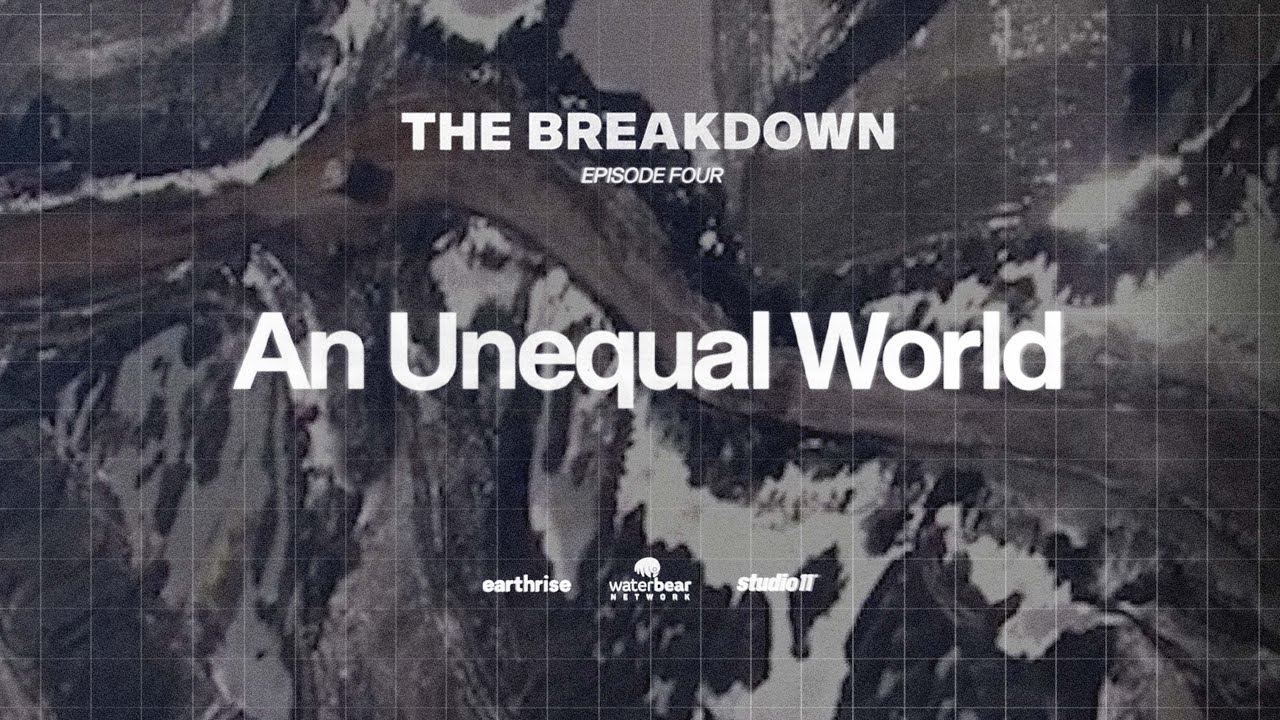What YOU can do about climate change
Summary
TLDRThis video explores the climate crisis and the urgent need for societal shifts to address this global emergency. It highlights the importance of both preventing future harm by transitioning to carbon neutrality by 2050 and mitigating existing damage through systemic change. The video argues that individual actions, while valuable, are not enough and that bold systemic shifts are essential. Viewers are encouraged to join the growing climate movement, advocate for policy change, and support sustainable practices to build a more resilient, carbon-neutral future.
Takeaways
- 🌍 The world is facing a climate crisis that requires urgent and large-scale societal changes.
- 🛑 The two main actions needed are to stop further damage by transitioning to a carbon-neutral society by 2050 and to manage the damage already done, such as higher sea levels and extreme weather.
- 💡 Individual actions like reducing carbon footprints are important, but systemic changes in industries and governments are crucial for long-term impact.
- 🚆 Transforming systems—such as making public transportation more affordable—will allow more people to adopt sustainable choices.
- 🔗 Collective action is more powerful than individual efforts. History has shown that movements succeed when people unite, like during the civil rights movement.
- 🌱 Everyone has a role to play in the climate movement, whether it's advocating in the workplace, starting community projects, or pressuring politicians.
- 📢 Recent years have sparked greater awareness and activism, with governments and corporations beginning to respond, but sustained pressure is needed.
- 🗳️ Voting for representatives who care about climate change and regulating corporations responsible for high emissions are essential steps.
- 🌟 The climate crisis is not the fault of individuals but of broken systems based on harmful ideas like extraction and consumption.
- 🤝 Together, we can create a sustainable future by amplifying our voices, holding leaders accountable, and building a thriving, eco-friendly world.
Q & A
What are the two main actions humans need to take to avoid the worst-case scenario of climate change?
-The two main actions are: 1) Stop further damage by transforming how we move, eat, farm, and power our homes to achieve carbon neutrality by 2050, and 2) Manage the damage already caused by extracting emissions from the atmosphere and adapting to locked-in effects like rising sea levels and extreme weather.
Why is the belief that individual lifestyle changes alone will solve the climate crisis problematic?
-While individual changes help, they rely on personal privilege and don't address the root problem. True change requires systemic shifts, such as governments investing in affordable, eco-friendly infrastructure and removing subsidies from harmful industries.
How can individuals contribute to climate action besides changing their consumption habits?
-Individuals can contribute by joining collective movements, pressuring governments and corporations, participating in local initiatives like community gardens, and electing leaders who prioritize climate action.
Why is focusing on systemic change more effective than focusing solely on personal carbon footprints?
-Systemic change tackles the broader infrastructure and policy issues that drive emissions on a larger scale, making eco-friendly choices more accessible to everyone, regardless of income or resources.
What historical example is used to demonstrate the power of collective action?
-The American Civil Rights Movement is used as an example to show how systemic change can happen when people come together to challenge a broken system.
What is the role of governments and corporations in addressing climate change?
-Governments and corporations need to enact bold, far-reaching changes, such as removing subsidies for polluting industries, investing in sustainable infrastructure, and being held accountable for the majority of emissions.
Why do people often feel overwhelmed when trying to tackle climate change on their own?
-Many people feel overwhelmed because they try to take on the massive responsibility of climate action individually, leading to frustration and a sense of helplessness.
What does the video suggest as a solution to overcome the overwhelming nature of climate action?
-The video suggests joining collective movements, which can reduce feelings of isolation, create a larger impact, and allow people to share the burden of making change.
How has the conversation around climate change shifted in recent years?
-In the last two years, a new generation of activists has sounded the alarm, causing governments and corporations to start paying attention, although there is still much progress to be made.
What is the overall message regarding individual responsibility in the fight against climate change?
-The message is that while individual actions are important, real impact comes from collective action and systemic change. Everyone has a role to play, but it goes beyond modifying personal habits to engaging in movements and political processes.
Outlines

هذا القسم متوفر فقط للمشتركين. يرجى الترقية للوصول إلى هذه الميزة.
قم بالترقية الآنMindmap

هذا القسم متوفر فقط للمشتركين. يرجى الترقية للوصول إلى هذه الميزة.
قم بالترقية الآنKeywords

هذا القسم متوفر فقط للمشتركين. يرجى الترقية للوصول إلى هذه الميزة.
قم بالترقية الآنHighlights

هذا القسم متوفر فقط للمشتركين. يرجى الترقية للوصول إلى هذه الميزة.
قم بالترقية الآنTranscripts

هذا القسم متوفر فقط للمشتركين. يرجى الترقية للوصول إلى هذه الميزة.
قم بالترقية الآنتصفح المزيد من مقاطع الفيديو ذات الصلة

Unesco Reimagining Our Futures Together Overall Intro

COP 29: Who pays for climate finance? • FRANCE 24 English

Climate Justice is Social Justice

Fiji struggles with relocations amid climate change crisis

How to move a whole country: Tuvalu’s plan to flee rising sea levels

'Issues of development and conflict still neglected by global North': South Africa's Pandor
5.0 / 5 (0 votes)
